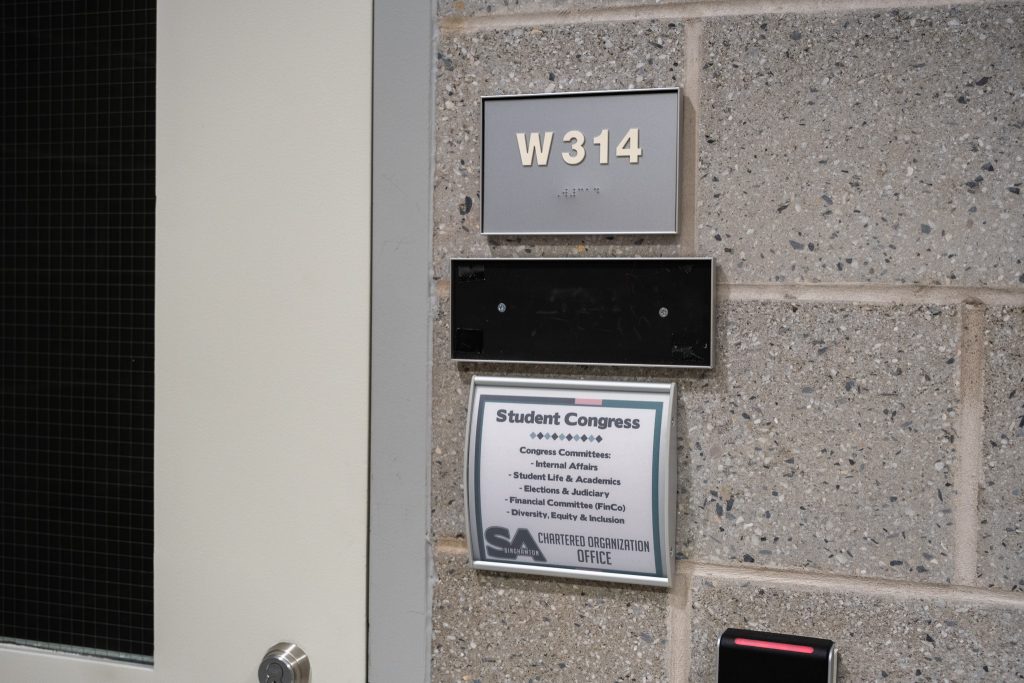The Student Association (SA) Congress voted Tuesday to adopt the Chicago Statement, which pertains to freedom of speech and expression at colleges and universities.
Produced in 2014 at the University of Chicago, the Chicago Statement focuses on holding universities accountable to uphold free speech and expression for all members of their community. Over 100 colleges and universities nationwide have adopted the policy, including the University at Buffalo and Princeton University. The resolution was proposed as a response to concerns from some students and campus organizations in recent years over perceived biases and mishandling on the part of Binghamton University relating to freedom of speech.
Christopher Ribaric, speaker of the SA Congress and a junior majoring in accounting, described the legislation’s deliberations.
“I believe that those who are passionate about passing this resolution believe that their fundamental right to free speech on campus is not as protected as they had hoped,” Ribaric wrote in an email. “Perhaps it is also a response to recent incidents on campus and around the world. I am happy that Congress was able to engage in a civil and well-mannered debate around this legislation.”
A commonly referenced University-specific free speech conflict is when Arthur Laffer, a former economic adviser to former Presidents Ronald Reagan and Donald Trump was invited to speak by the College Republicans in 2019. Laffer’s appearance, sponsored by the Young America’s Foundation (YAF), was brought to a halt when student protesters entered the lecture hall to voice objections over a bullhorn.
A few days prior, the College Republicans had tabled with Turning Point USA, an event that was also met with protests. The perceived mishandling of the event and its aftermath by the University was at the center of a lawsuit filed by the College Republicans, their then-president Jon Lizak and YAF. The lawsuit cited First and fourteenth Amendment violations by the University and listed BU President Harvey Stenger among the defendants.
The SA resolution to adopt the Chicago Statement was authored by Logan Blakeslee, the secretary of the College Republicans, an off-campus Congress representative and a senior double-majoring in history and political science, who expressed a desire for all students’ speech and expression to be protected.
“Whereas [BU] is committed to free and open inquiry in all matters, it guarantees all members of the [campus] community the broadest possible latitude to speak, write, listen, challenge and learn,” the resolution read. “Except insofar as limitations on that freedom are necessary to the functioning of this institution, [BU] fully respects and supports the freedom of all members of the community to discuss any problem that presents itself.”
In response to the recent concerns over the protection of free speech and expression at BU, Blakeslee said that the resolution’s passage would ease campus tensions.
“I received a lot of great feedback from many students who were concerned about free speech and related issues as they appear on campus,” Blakeslee said. “I feel as though this is definitely a major statement that will go out to students who feel as though they cannot express their deeply held beliefs or opinions in the classroom, with their friends or with clubs. I feel that now this has passed students can have more genuine conversations, and I think in the long term this will lead to a healthier campus environment.”
BU was investigated by the Department of Education (DOE) in 2020 for potential violations of students’ free speech and free inquiry rights regarding the events that took place from Nov. 14-19, 2019. The aforementioned tabling event and the Laffer incident were cited in the letter, which also said that evidence suggested that the University “selectively applies its stated policies and procedures” in a biased way.
Not all who voted at the most recent session of the SA Congress were in favor of adopting the Chicago Statement. Many abstained from voting, including Yuki Li, a junior majoring in philosophy, politics and law, citing a lack of time for debate.
“I just think there wasn’t enough time to discuss how the resolution was relevant to the students on campus,” Li said. “Or how the changes to the resolution were impactful from last meeting’s discussion. I think if we spent more time on it, I would’ve been more inclined to make a more resolved decision rather than abstaining.”



